Consider how these tips might support you:
Matrix Management is a common part of global leadership reporting arrangements. Whether it is a local supervisor also supporting your global team members, leading in the matrix can also require some fine-tuning on your leadership. Today's post explores four keys for making matrix management work:
1. Creating Shared Expectations - Given that your staff members will be managed by two or more sets of people, creating shared expectations among the three (or more) of you is key. Who do you report to on what? What does success look like to all the parties involved? What are everyone's various expectations and priorities? How do these align? Conflict?
2. Clarity - Clarity around roles and responsibilities, reporting relationships, goals and who does what, is key in successful matrix management. Taking time to be extremely clear is key to success. Having a plan and process in place to address lack of clarity issues can also be important.
3. Checking Assumptions - Given that matrix management relationships often occur at a distance, it is important to check the various assumptions. Assumptions about priorities, flow, pace, quality may be a starting point for discussion on a regular basis.
4. Frequent Touch Points and Adjustments - Regular and frequent touch point amongst the three parties can be very useful, along with an understanding that regular adjustments will need to be made. In my former world of work, I usually tried to aim for quarterly or semi-annual three-way meetings (both supervisors and employee). While this took some planning time, it was often identified as a critical success factor.
What other tips do you have for others around matrix management?
All the best!
Jennifer
Potentials Realized | Coaching Team Leaders
Coaching Skills Training | Leadership Development | Teamwork
Growing Team Leaders, One Conversation at a Time™ in the Remote Space
Contact us to discuss leadership, coaching or performance needs for your and your team
Phone: (416)996-8326
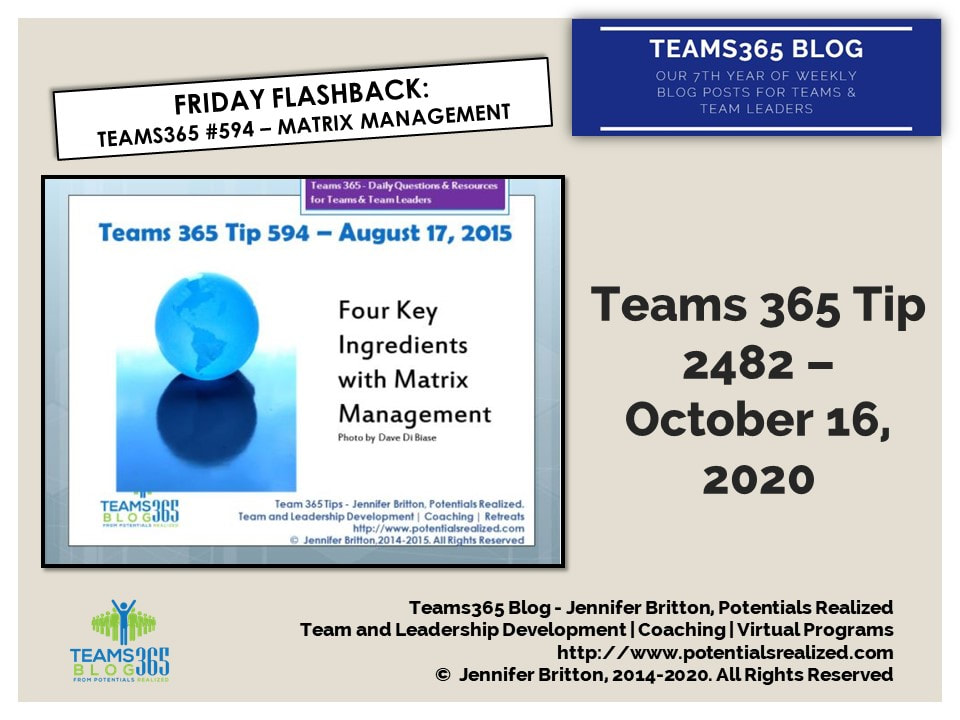
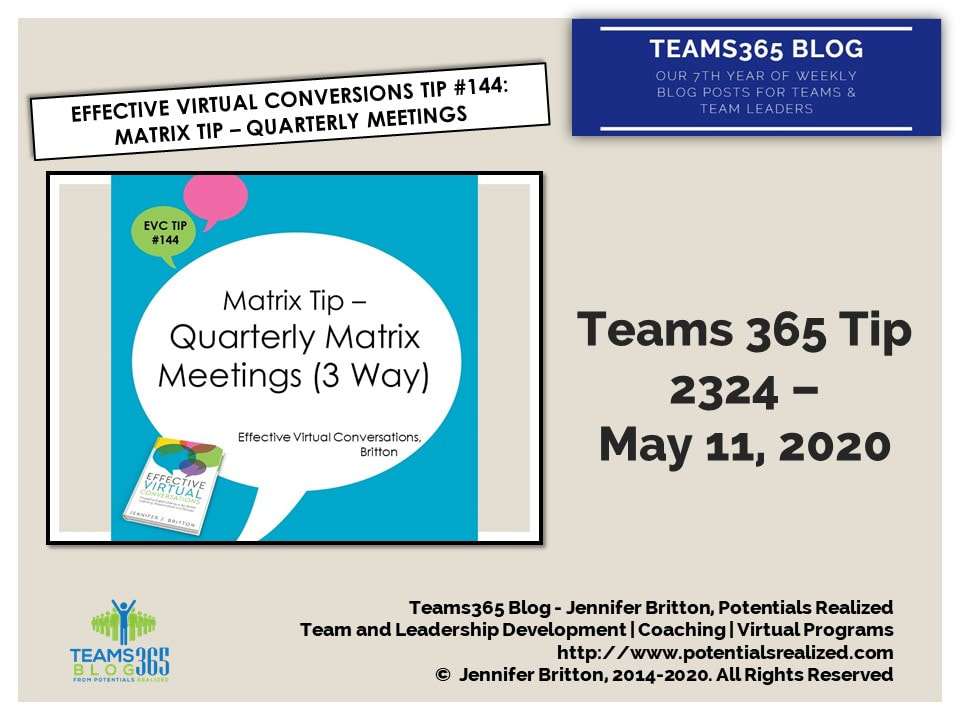

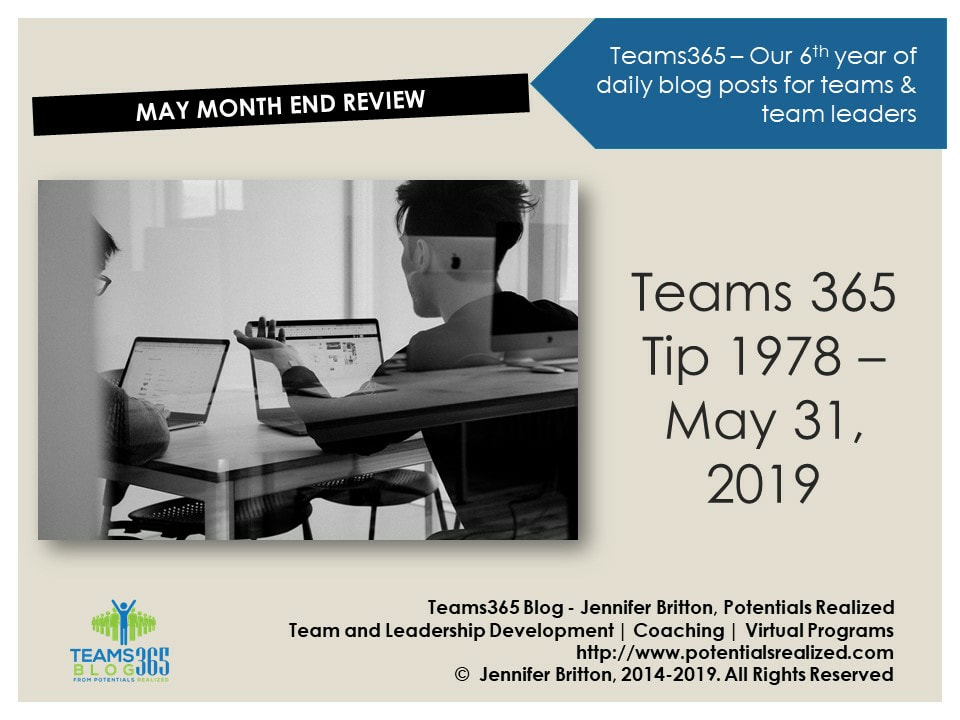

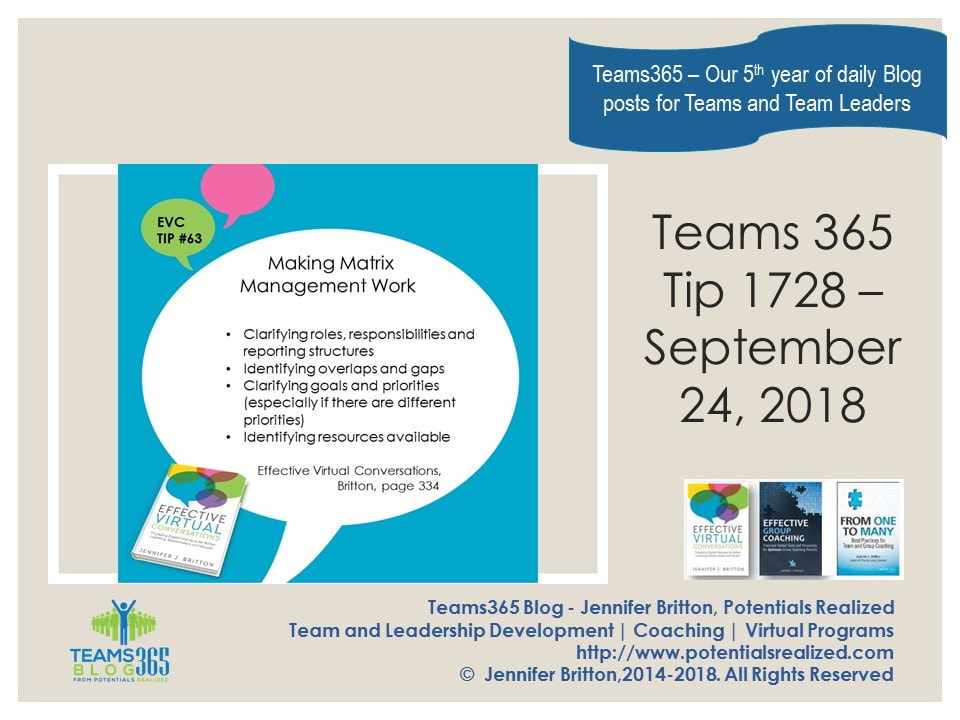
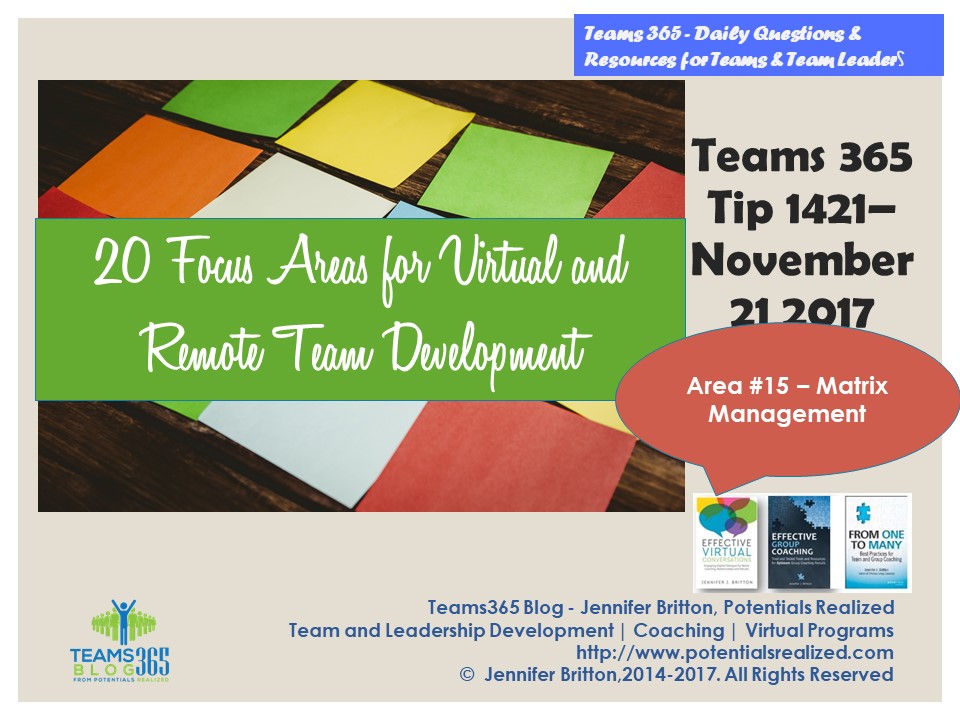
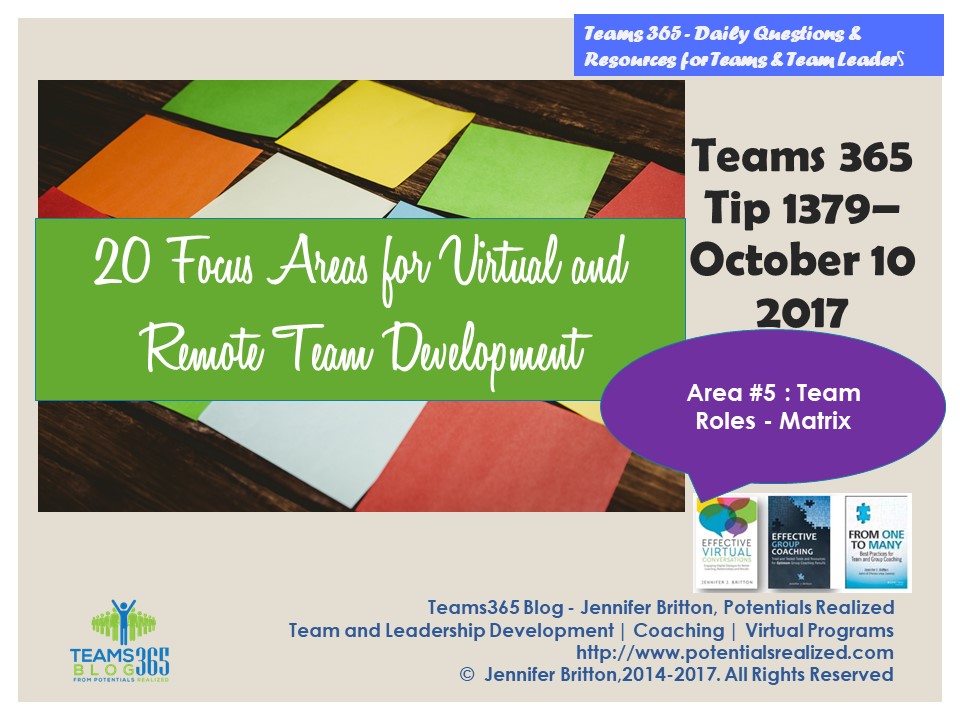
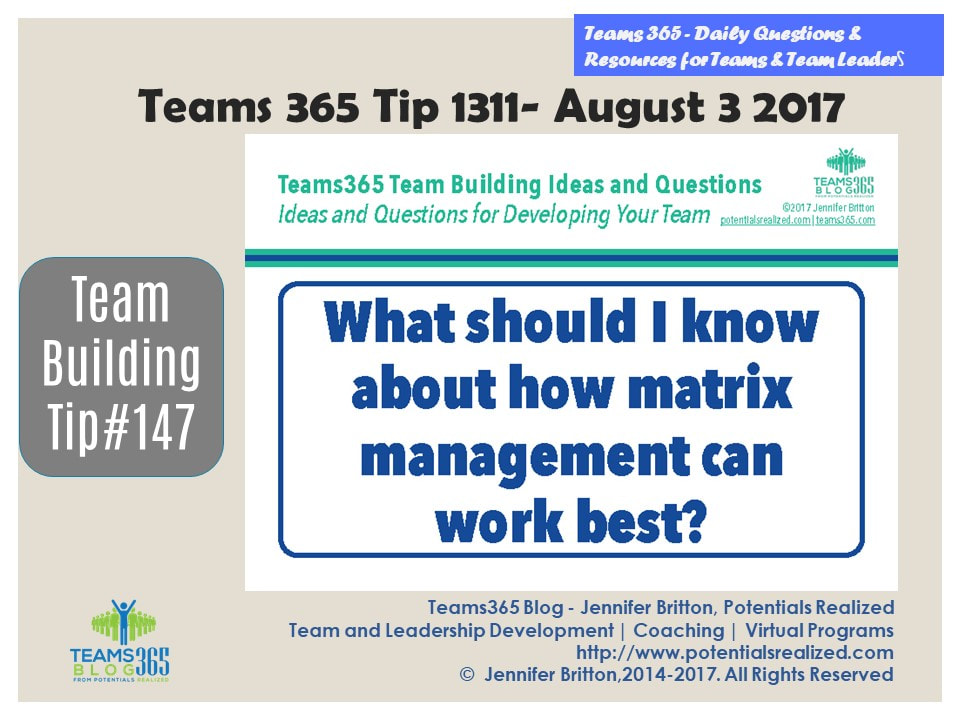
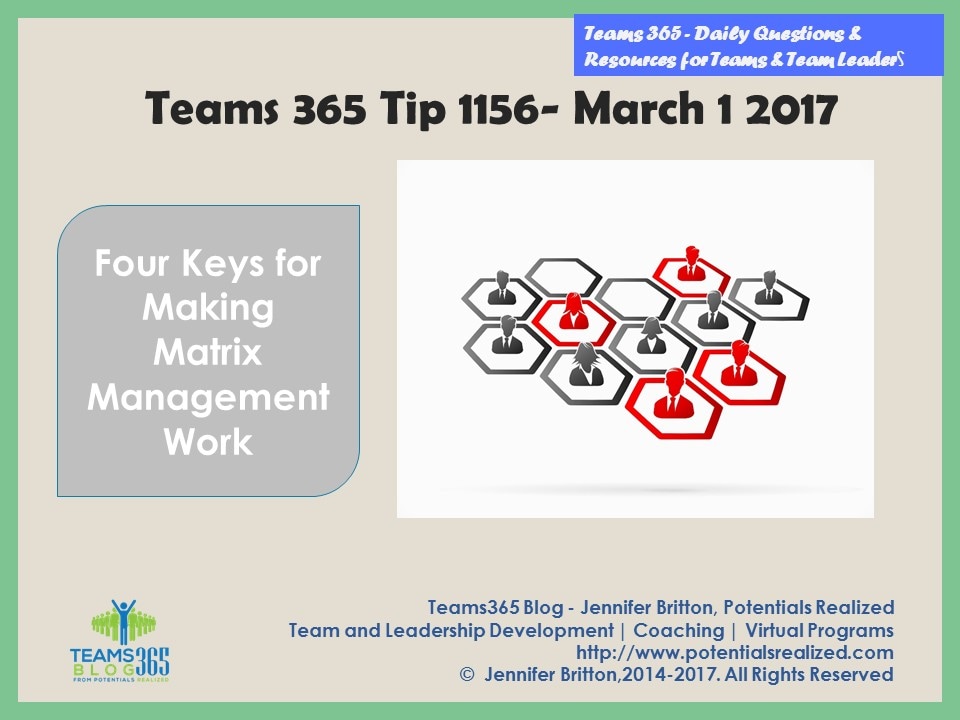
 RSS Feed
RSS Feed





